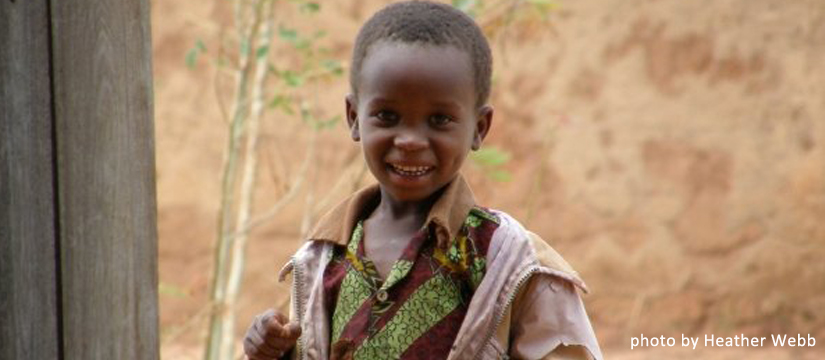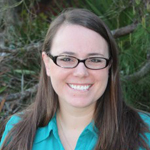When a woman in the US finds out she’s pregnant, she has about a million decisions to make.
Where will she go for prenatal care?
Will she find out the gender of the baby?
What color will she paint the nursery?
Where will she register for the baby shower?
Does she need to get her unborn baby on the waiting list at the best preschool in town?
Will she deliver at home? At a birthing center? At the hospital?
Will she delivery naturally or have an epidural? What about a C-section?
Will she breastfeed or use formula?
Cloth diapers or disposable?
Will she use a sleep training method?
Which pediatrician will she choose?
Which carseat will she buy?
The list goes on and on and on and can make your head spin.
We have So. Many. Options.
We were living in Tanzania, East Africa when we discovered that I was pregnant with our miracle baby. We, too, were faced with a million decisions, and a million examples of the inequality of the world.
Where would we do prenatal care since there wasn’t adequate healthcare in our town? We drove 6 hours each way for monthly prenatal checkups. Many Tanzanian women take advantage of free prenatal checks in their town, regardless of the quality, because they can’t afford any other option.
At our first prenatal check, the Dutch doctor we were seeing told me that I needed to take anti-malarial medication because malaria can be fatal to an unborn baby. I could afford to buy the medication AND I had intact screens on all the windows of my house. I had a mosquito net that I could sleep under each night. Not all Tanzanian women have those luxuries.
Our Dutch doctor recommended that we not deliver our baby in Tanzania. She couldn’t even recommend the best hospital in Tanzania with confidence. We had the option of driving 15 hours to Nairobi, Kenya, and staying at a guest house for a month before my due date and during the recovery process, but we didn’t know anyone in Nairobi. We chose to fly halfway around the world in order to give birth in an American hospital. Our friend, Mary, after making a series of bad choices as a teenager found herself alone and pregnant. She once told us about the day her first child was born. She walked
by herself,
in active labor,
in the middle of the night,
to the hospital,
fainting along side the road because of the pain.
If you had the option, where would you deliver your baby?
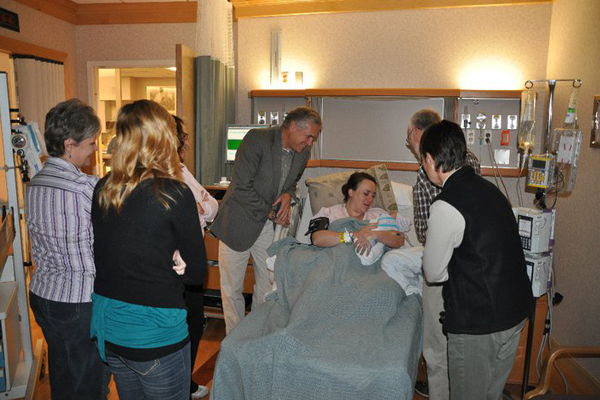
Small town hospital in Indiana
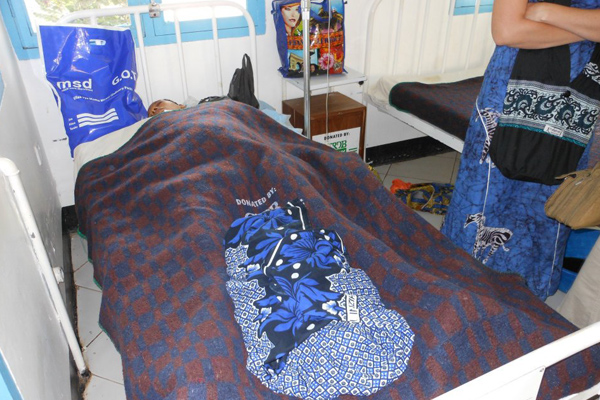
My Tanzanian friend laying in her bed at the General Hospital the day after she delivered her baby.
There are no bassinets. The baby is wrapped loosely in a cloth and laid between her legs.
I delivered my daughter in a private, clean, comfortable hospital room with the support of my husband and surrounded by state of the art medical equipment. Most Tanzanian women in our town give birth at the General Hospital where men are not permitted in the labor/delivery ward. Where 50 beds line the walls of the ward and if there is availability, you’ll be lucky enough to have your own bed.
Did you catch that? You may get a bed to yourself. Not your own room, your own bed.
It’s a place where mosquito nets are spread out each evening to try to protect the mother and newborn from malaria. A place where, hopefully, you have a sister or a friend who can help you because you have to provide your own food and wash your own linens while you’re a patient.
Life is not fair.
What did I do to deserve being born in the United States with seemingly endless opportunities and resources available to me?
Absolutely nothing.
What did my Tanzanian friends do to deserve being born in a country where there are considerably fewer options?
Absolutely nothing.
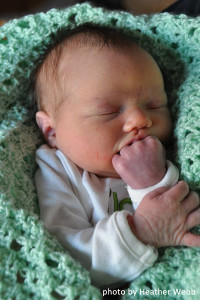
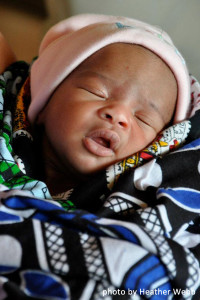
Two beautifully perfect miracle babies. To God be the Glory.
There are no easy solutions to resolving the unfairness in the world, but it can be a jumping off point for self-reflection and evaluation. The inequality I experienced changed me.
The inequality expanded the gratitude in my heart.
The inequality increased my compassion for those around me.
The inequality has helped me to stay focused on what really matters.
The inequality has humbled me.
The inequality has helped me feel more content.
Life’s not fair. Period.
But I’m thankful for the ways it’s changed me. We live in a place where people with endless opportunities feel entitled to more, MORE, MORE.
I’m hopeful, though, that as my daughter hears her story told and retold and sees me living out the changes that her birth story has created in me, that she’ll be different too.

